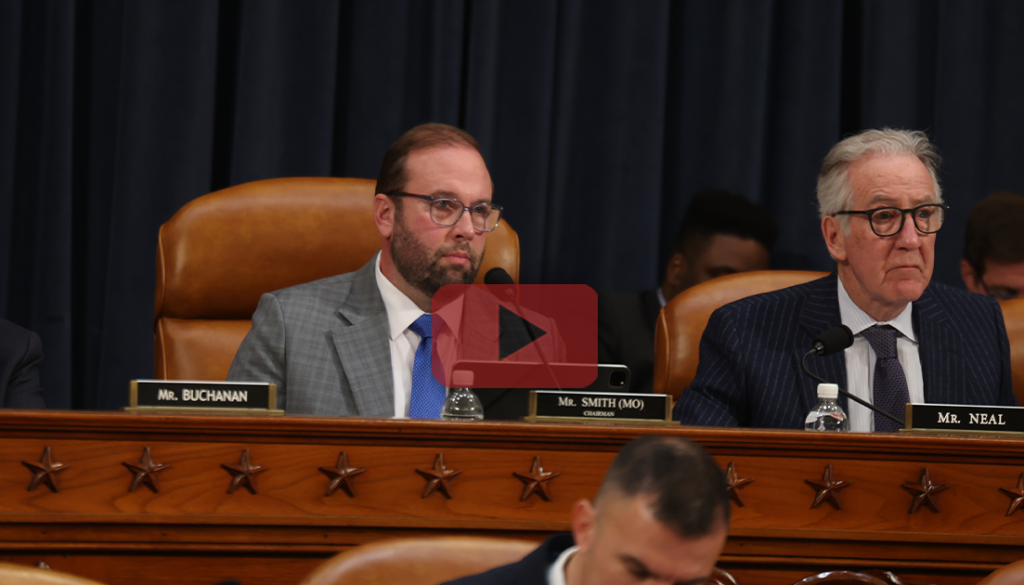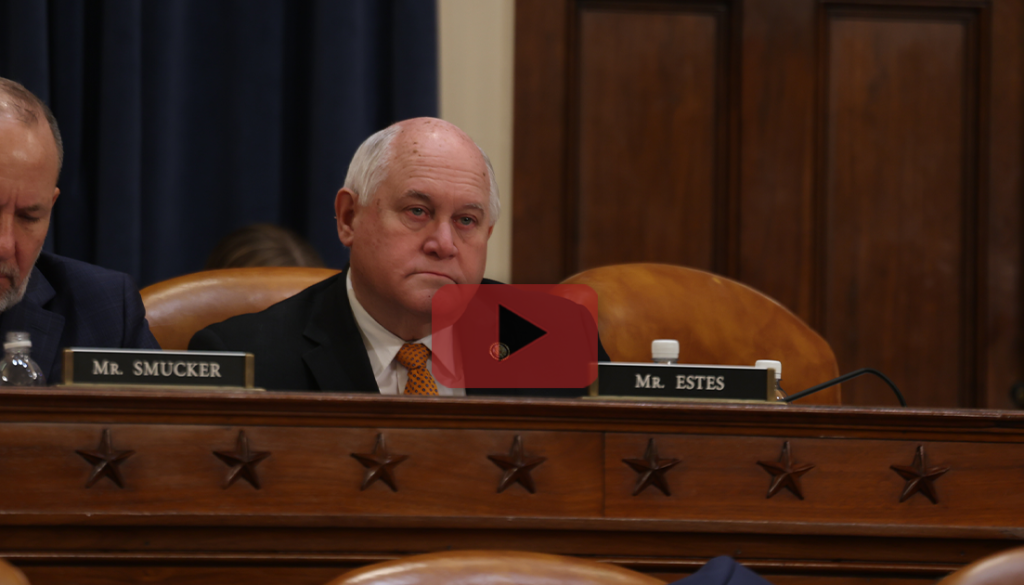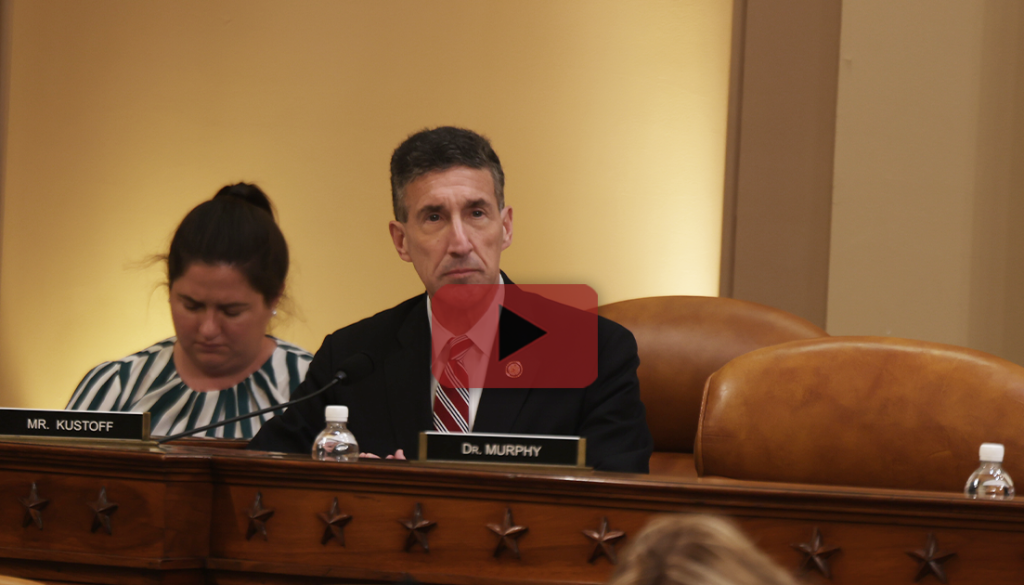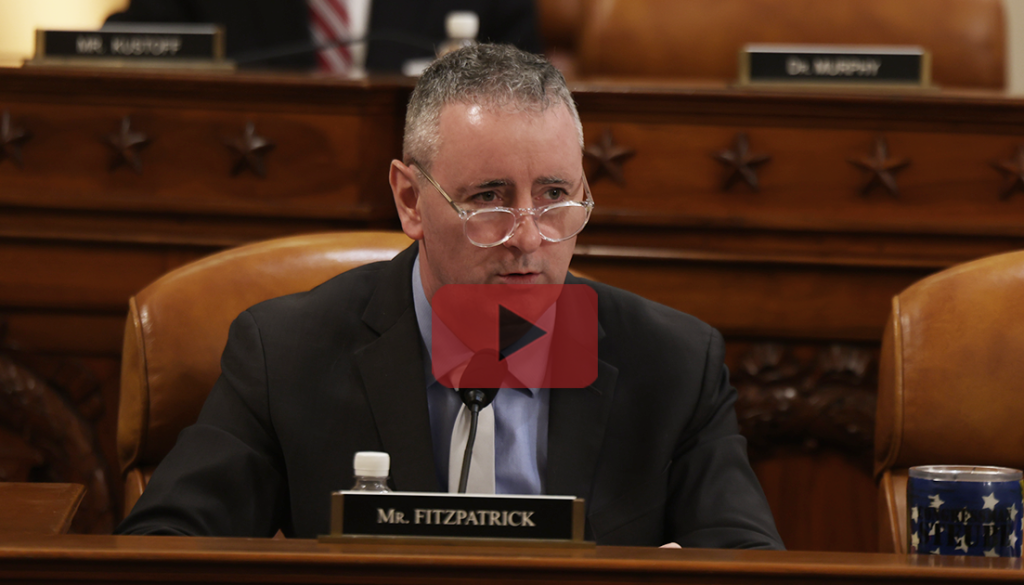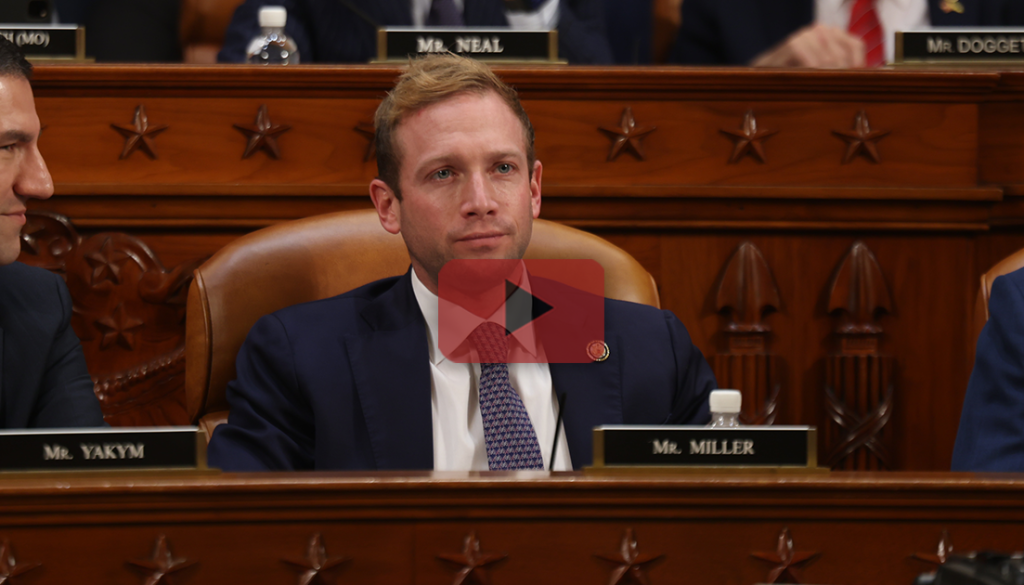Chairman Smith: “If we want to continue President Trump’s legacy of a strong economy, Congress must act swiftly to make the tax cuts permanent.”
WASHINGTON, D.C. – At the first policy hearing of the 119th Congress across both the U.S. House of Representatives and Senate, Americans testified about the need to make the Trump tax cuts permanent. A mother, manufacturer, and a small business owner shared their stories about the difference that the 2017 tax cuts made for their families or businesses. Job creators stressed the importance of quickly making the tax cuts permanent to give businesses the certainty needed to plan their investment and hiring strategies instead of wondering if their taxes will go up next year.
The hearing highlighted the opportunity before Congress to support American workers, families, farmers, and small businesses that would be hurt if the Trump tax cuts expire:
- 40 million parents will have their Child Tax Credit slashed in half.
- 2 million family farmers will see the Death Tax exemption slashed in half.
- 91 percent of all taxpayers will see their guaranteed deduction slashed in half.
- 26 million small businesses will be hit with a 43.4 percent top tax rate, more than 20 points higher than what businesses pay in Communist China.
- 7 million taxpayers would be impacted by the return of the Alternative Minimum Tax.
“My Phone Has Been Ringing Off the Hook”: Small Businesses Facing Uncertainty
Right now, small and family-owned businesses are unsure whether to invest and hire as they face the threat of a 43.4 percent top tax rate and a Death Tax exemption that is slashed in half. If Congress does not act swiftly to make the expiring provisions of the 2017 tax cuts permanent, small and family-owned businesses will face a higher tax bill and have less capital to invest in creating jobs, raising wages, and expanding their operations. Ways and Means Committee Chairman Jason Smith (MO-08) highlighted how all Americans, including small businesses, will be affected if the Trump tax cuts are not extended.
Chairman Smith: “One of the major reasons to extend the 2017 Trump tax cuts as soon as possible is to give American workers, families, farmers and small businesses certainty in the long run. Small businesses are facing a 43.4 percent tax rate if the 199A small business deduction expires. This looming threat impacts decisions they are making today about whether to invest, grow, hire. The same is true for the 2 million family farmers facing a potential increase in their death tax. If Congress doesn’t act soon, family-owned farms and Main Street businesses will have to start calling estate planners and accountants to figure out how they navigate the potential increases in taxes. Can you speak to how this uncertainty drives decision making today among America’s families, farmers, and small businesses?”
Michelle Gallagher, Certified Public Accountant: “My phone has been ringing off the hook since last August with the pending election, from families and business owners and the uncertainty of where this tax change may go. We have been running meetings and scenarios with our clients for months now, trying to plan for the future…It is imperative, as an advisor to these folks, to be able to help them navigate these tax policies. I’ve been around 35 tax seasons, and I have experienced last-minute tax changes by our government, and it is extremely frustrating…I can’t encourage you enough to do this swiftly and quickly to help our businesses and our farmers make some decisions.”Manufacturers Urge “Predictable” and “Pro-Growth” Tax Code
American manufacturers benefited from several aspects of the Trump tax cuts, including 100 percent immediate expensing. Manufacturing is capital intensive and requires planning investments years into the future. Because uncertainty today could dampen investment and hiring in the years to come, a North Carolina manufacturer urged Congress to provide “predictable” policies that would grow the manufacturing industry and create jobs in the United States.
Rep. Kelly: “I get so tired of people talking about tax revenue who never had to worry about making a profit in order to pay taxes. Ms. Silver, I was reading about what you do because I have so many people back home that do what you do, and how tough it is. It’s no bed of roses…Please share more, because I thought your testimony was incredible.”
Courtney Silver, small North Carolina manufacturer: “We need pro-growth tax policies that are permanent, that are consistent, that are predictable, to help us be able to grow. Our manufacturing supply chain in our country needs us. They need us to grow. They need us here.”
Real-World Example of Danger of Trump Tax Cut Expiration
The looming expiration of the Trump tax cuts means millions of small businesses face difficult choices about whether to cancel the purchase of productive equipment or the hiring of new workers. Unfortunately, the value of R&D expensing has declined over the last three years, hurting businesses who rely on the tax provision to develop new innovative technologies that increase America’s economic competitiveness. A witness shared how the decline in the value of R&D expensing has hurt her business as well as the “ripple effect” it has had across the businesses she works with, a foreshadowing of the tough position that entire industries will encounter if the Trump tax cuts are allowed to lapse.
Rep. Estes: “Some people wrongly conceive of the business provisions in the Trump tax cuts as handouts or special treatments for business. Can you share how business provisions like immediate R&D expensing allowed you to reinvest in your business to support your employees and customers?”
Courtney Silver, small North Carolina manufacturer: “Manufacturing is a total team sport, so this expired R&D tax provision has affected my customers and it has affected my suppliers. No matter what your size or structure of your business, we are affected by this. I can give you an example. I run my entire business on a software, on an ERP system it’s called. The company that built that software is in Texas, and they were dramatically affected. Their tax liability went up by a lot after this R&D tax provision expired. So they have less ability to reinvest their profits, to create new jobs, to innovate the product that I use every day to run my business. There’s a ripple effect to me and that’s just one example.”
Death Tax Spells Death For Family-Owned Small Businesses
If the Trump tax cuts expire, millions of family-owned farms and small businesses would be caught in the crosshairs of the Death Tax. Two million family farms and countless family-owned generational businesses could see their legacies put in jeopardy. An exemption half the size of what it is today would force families to close their businesses and lay off employees after generations, as a third-generation manufacturer testified.
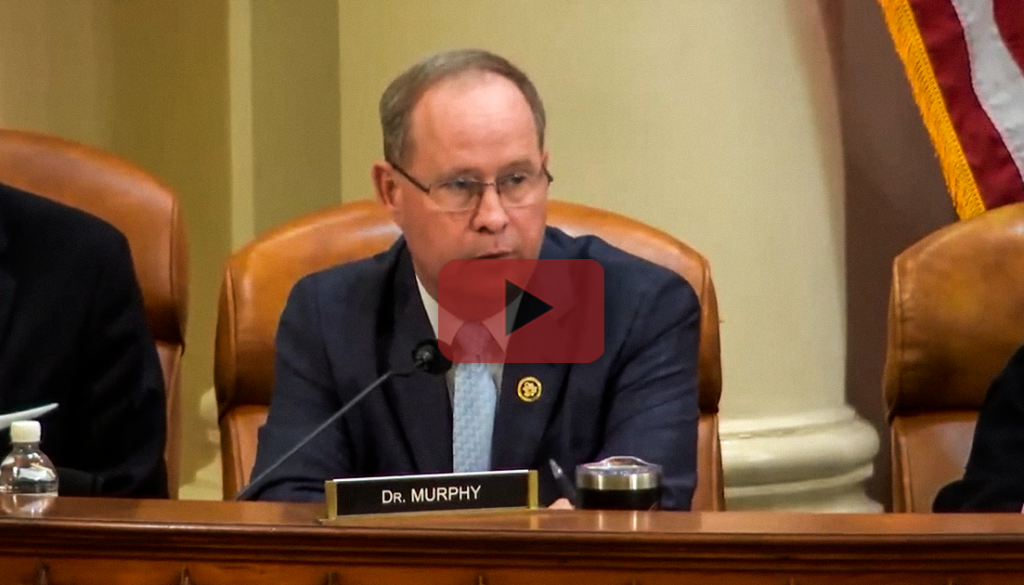
Rep. Murphy: “I went out and toured a sweet potato farm that went through generations upon generations. Now we have the estate tax that is come due, that would drop, that would plummet. How does that work with your family? What things would you have to face if that were to occur?”
Courtney Silver, small North Carolina manufacturer: “In 2014, it could have drastically affected us… the expiration of the estate tax. My husband was the sole shareholder and owner of Ketchie, so upon his passing, it went to me, and I don’t know if I would have continued on with his legacy, if I would have had this large looming tax bill ahead of me.And I’m in a very capital-intensive business, which I kind of described earlier. So, a lot of times, we don’t have the liquidity in the business to pay such a tax. And I really view it as double taxation. I’ve already paid taxes on my assets. I’ve already paid taxes on my business on my income.”
Small Business Deduction Reinvested In Employees and Community
If the Trump tax cuts expire, the 20 percent small business deduction will disappear, impacting 26 million small businesses. As a Georgia accountant testified from her experience handling the finances of multiple small businesses, this deduction allows employers on our Main Streets to raise pay and provide benefits to employees.
Rep. Kustoff: “Ms. Couch, you talked about…how important section 199A has been since 2017 to small business owners. Can you talk about, from your standpoint, working with those business owners, what it has meant, not only in terms of being able to hire more employees, but also to provide for their wages and benefits.”
Alison Couch, Georgia small business owner: “199A has provided tax relief to free up cash flow that’s been reinvested in small business by the owners. Small business owner income is different from business income. The owners take profits and invest them back into their businesses, and that’s done by way of raises and hiring additional employees. They also use that money to invest in software purchases and things of that nature, but they also give money to the T-ball teams, they sponsor youth trips. They really invest it back into their communities as well, and that’s something that we can’t ignore. I’m afraid [those] would be some of the first things to be cut if that deduction expired.”
40 Million Families Will Be Hurt By Child Tax Credit Slashed in Half
The Trump tax cuts helped working parents provide for their children by doubling the Child Tax Credit to $2,000 per child. If the Trump tax cuts expire, the credit would be cut in half and return back to $1,000. After prices rose over 20 percent during the Biden-Harris Administration, families cannot afford to see more money taken out of their pockets. In her opening statement and during the hearing, Virginia mother Margaret Marple shared how the Child Tax Credit has allowed her family to save for emergencies and take care of her children.
Rep. Fitzpatrick: “Currently, the Child Tax Credit benefits approximately 40 million families each year. Obviously, the Tax Cuts and Jobs Act doubled it from $1,000 to $2,000 and attached a Social Security Number requirement for the first time. To reiterate, our current law, the CTC is $2,000 per child, and if it were to expire, it would drop back to $1,000. Moreover, the refundability was a key element. The refundability was increased from $1,000 to $1,400. Moreover, it was indexed to keep track with inflation. If we do not extend the Child Tax Credit, all Americans will see their tax refund go down…Mrs. Marple, as a stay-at-home mom with three children, can you speak to the benefits of the child tax credit for you and your family, and the importance of keeping that protected?”
Margaret Marple, Virginia mother: “As a stay-at-home mom and raising kids at home, there’s a lot of pressure at every angle, and a big one is financial. It influences your marriage. It influences all your decisions, especially grocery shopping and trying to meet needs for your growing family. The Child Tax Credit is a powerful form of communication, where the government communicates to people like me working behind the scenes, that my job raising kids is important to the stability and the prosperity of our country.”
If Small Business Deduction Expires, “it will cost some small business owners their businesses.”
A Georgia small business owner shared a perspective echoed by small business owners from across the country: losing the small business deduction, Section 199A, would look and feel just like a tax hike. Job creators in every district and state would be impacted, leading to job loss, cancelled investment, and even the permanent shuttering of Main Street businesses.
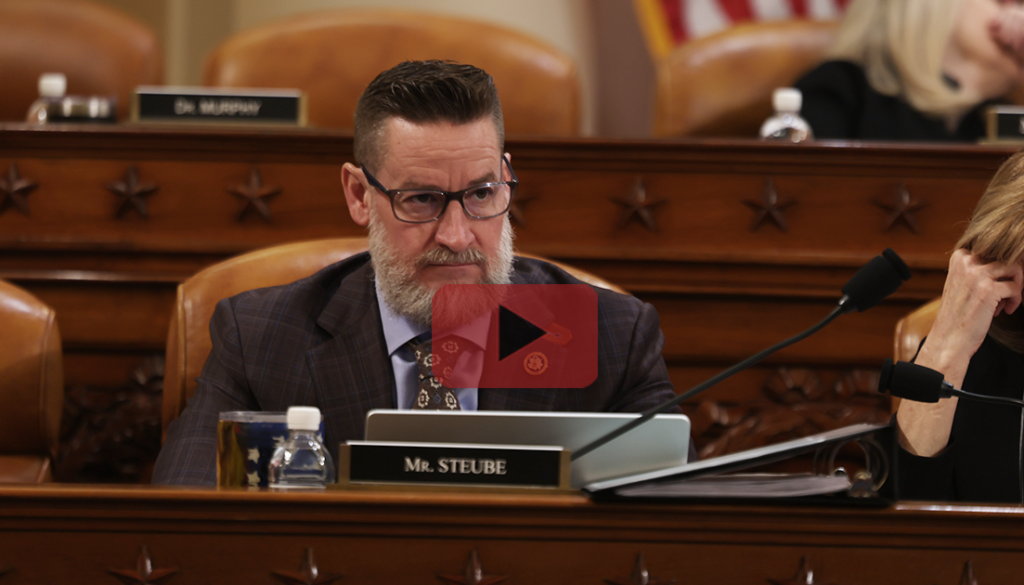
Rep Steube: “If 199A were allowed to expire, how would your businesses and clients be forced to respond?”
Alison Couch, Georgia small business owner: “If 199A expires, it will feel like a tax increase on small business owners, instead of a sunset of a tax deduction. What you will see as a result of that is the inability to provide raises, the inability to invest in new equipment, inability to really invest in R&D and different things of that nature that are so crucial when you own a small business. Quite frankly, I think that it will cost some small business owners their businesses. I think it is that impactful.”
Under a Return of the Alternative Minimum Tax the Middle Class Would Be “Targeted and Hammered”
The Trump tax cuts protected middle-class taxpayers from the Alternative Minimum Tax (AMT), a complicated tax that forces Americans to calculate their taxes twice. If the 2017 tax cuts are allowed to expire, 7.3 million Americans – including many small businesses – would be swept up by the AMT, a figure far higher than the 200,000 taxpayers who pay the tax today.
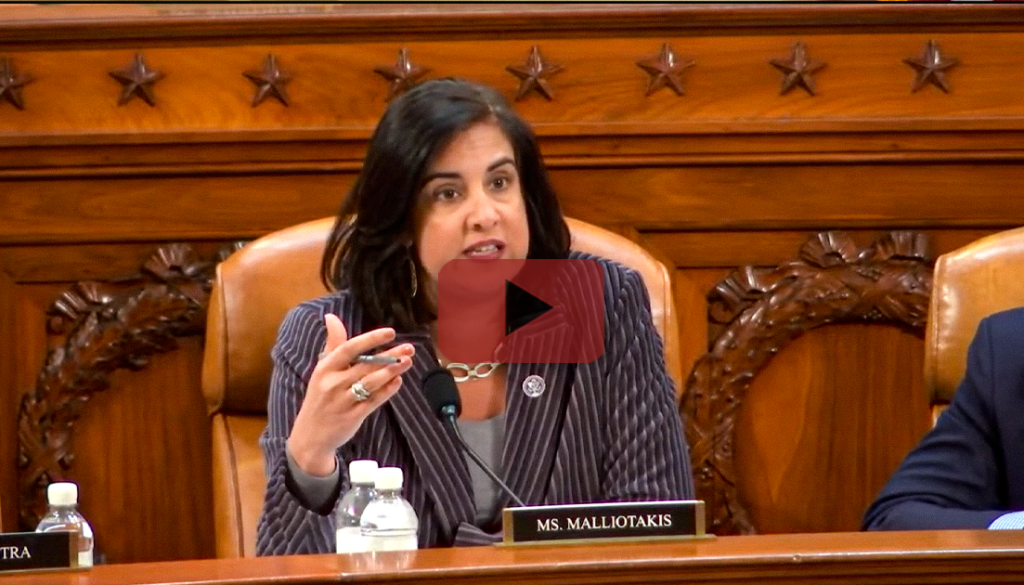
Rep. Malliotakis: “The Alternative Minimum Tax should not come back right, and if so, what would what kind of impact would that be on middle class families?”
Michelle Gallagher, Certified Public Accountant: “Usually when we start talking about the alternative minimum tax or AMT, as I’ll refer to it, people just run out of the room. Frankly, it is one of the most complex and complicated tax computations in the Internal Revenue Code.”
Malliotakis: “It targeted the middle class, really, that’s who got hammered by it.”
Gallagher: “Targeted and hammered middle class, no doubt about it.”
Malliotakis: “The SALT (state and local tax) deduction, can you explain how constituents may not have benefited from SALT because of the AMT?”
Gallagher: “When you’re calculating your Alternative Minimum Tax, taxable income, you have to add back all of your SALT taxes. My warning in my written testimony was that if there’s the argument, to have SALT, then we have to keep AMT out as well, because everybody who may not be limited in SALT will now be paying AMT and they’re no further ahead than they were.”
Guaranteed Deduction Helps Small Business, Not Just Individual Taxpayers
The Trump tax cut’s doubled guaranteed deduction simplified the tax filing process and allowed working families to spend their time and hard-earned money on things other than filing taxes. The 91 percent of taxpayers across the country who use the guaranteed deduction, even those who formerly itemized, received a tax cut. More money in taxpayers’ pockets and simplified tax returns translates into more prosperous households and stronger local economies.
Rep. Miller: “We know that the increased standard deduction significantly boosts disposable income for families, directly benefiting individual taxpayers. However, it’s clear to me that the advantages for households and businesses are deeply, deeply interconnected as stronger household finances drive broader economic growth and support local businesses. Can you please comment on how the standard deduction affects disposable income for families, and have you observed any indirect impacts on small businesses or local economies with high reliance on this deduction?”
Michelle Gallagher, Certified Public Accountant: “Absolutely the standard deduction has been a life changer for individuals, and frankly, my fellow tax preparers…The taxpayers, however, on that side, have received significant tax savings. Many of them were far under that level when, even when they itemized, and so the standard deduction gave them increased deduction, i.e. less taxes to pay, and more money in their pocket to contribute to their communities and to their own households. I absolutely saw a direct impact on individuals and small businesses in my communities.”
Non-Billionaire Confirms Trump Tax Cuts Helped Her Family
Democrats lobbed false, disproven attacks that the Trump tax cuts were handouts to the wealthy and billionaires. The truth is that taxpayers earning less than $100,000 received a 16 percent tax cut while the amount paid by the top one percent rose. After the tax cuts became law, wages rose faster for the bottom 10 percent than the top 10 percent.
Hearing witnesses also knocked down the Democrats’ narrative. One witness testified how much of a difference the doubled Child Tax Credit made for her and her family even though she is not a billionaire.
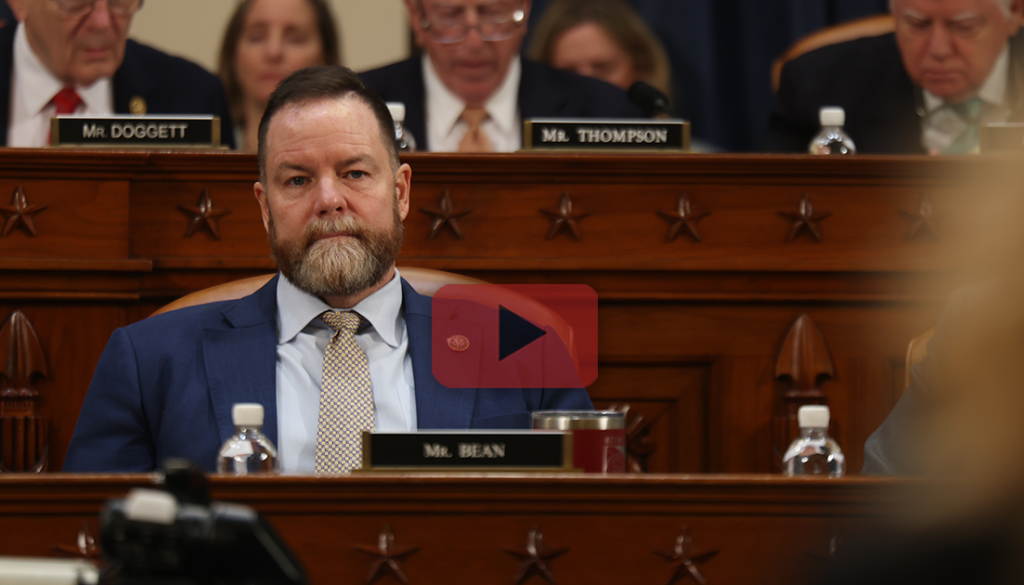
Rep. Bean: “Mrs. Marple, you have testified what a game changer the tax credit is. You’ve said that it’s made a tremendous difference for the Marple household. Is that correct?”
Margaret Marple, Virginia mother: “Yes.”
Bean: “Are you a billionaire?”
Marple: “No.”
Bean: “All I hear is this, Trump’s tax cuts have only benefited billionaires, Fortune 500 companies. I looked at your income, Ms. Marple, and it’s part of your testimony. It’s $75,000…It’s true then that you’re not a billionaire. I don’t understand how the Trump tax credits could help somebody like you making that amount of money, but yet it did…Getting that tax credit that really made a big deal for you. In your testimony, you said it is.”

